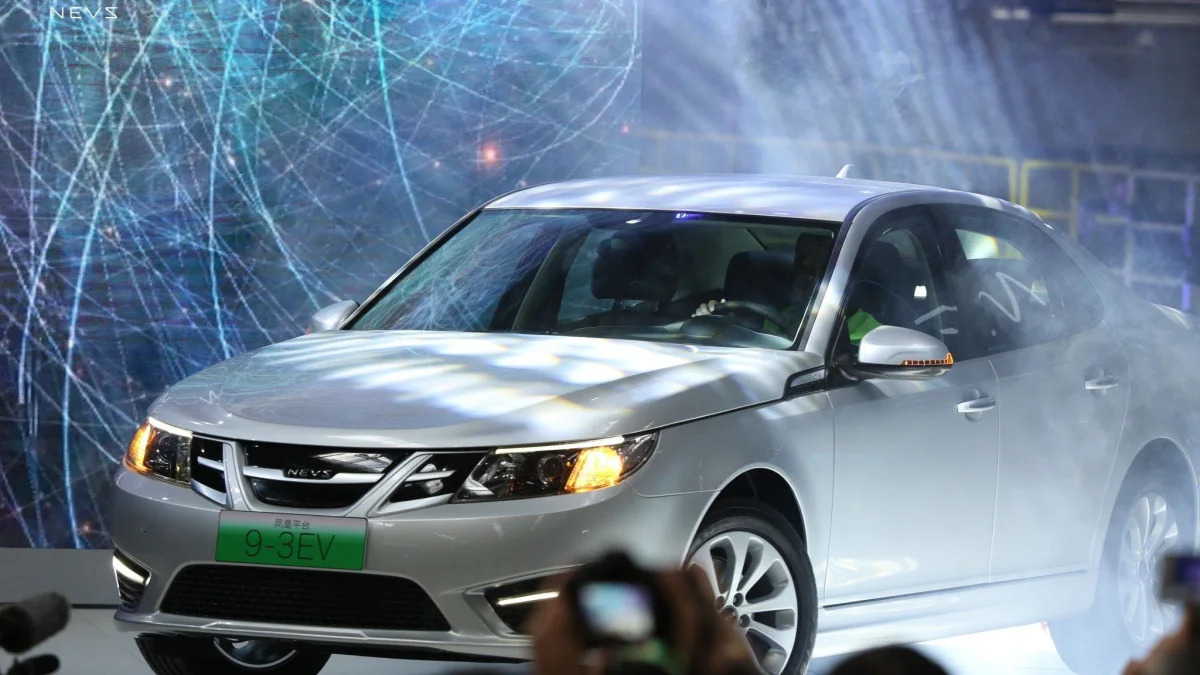NEVS, the Chinese-Swedish company that acquired the main assets of Saab in 2012, has launched production of its rebadged 9-3 all-electric sedan at its new factory Tianjin, China, calling it "an important milestone in implementing NEVS' vision to shape mobility for a more sustainable future and to start delivering EVs to our partners."
NEVS, short for National Electric Vehicle Sweden, says its annual production capacity at the new plant is 50,000 electric vehicles in phase one and 220,000 in the second phase.
NEVS showed its Saab 9-3-based EVs at CES Asia in Shanghai in June, and it's based on a vehicle first introduced way back in 2002. It features a driving range of about 186 miles, an in-cabin air filtration system that it says removes up to 99 percent of air particulates (critical for badly polluted Chinese cities), in-car WiFi, smartphone connectivity and are capable of over-the-air software updates. NEVS is not allowed to use the Saab brand name after Saab AB, the still-operating aircraft manufacturer and defense company that used to be the parent of the famous Swedish auto brand, revoked it amid NEVS' financial difficulties several years ago.
In previous press releases, NEVS claimed it has received thousands of pre-orders from various companies in China, signed a $12 billion agreement to collaborate with EV leasing company Panda New Energy for 150,000 cars, and has a deal to let the Turkish government use the intellectual property rights for the Saab 9-3 (but not its name) to develop a new Turkish brand.
In the new release, NEVS says it is developing three generations of EV powertrains at R&D facilities in Tianjin and Trollhattan, Sweden, with the second and third generations being developed with Chinese ride-sharing behemoth Didi Chuxing. Along with Didi, it's also working with the Global Energy Interconnection Corp. on a joint venture to provide service and infrastructure for electric vehicles for ride-sharing services.
The company also said, in its Facebook post above, that it plans to launch mobility pilot programs in select European cities in 2020.
Related Video:






Sign in to post
Please sign in to leave a comment.
Continue